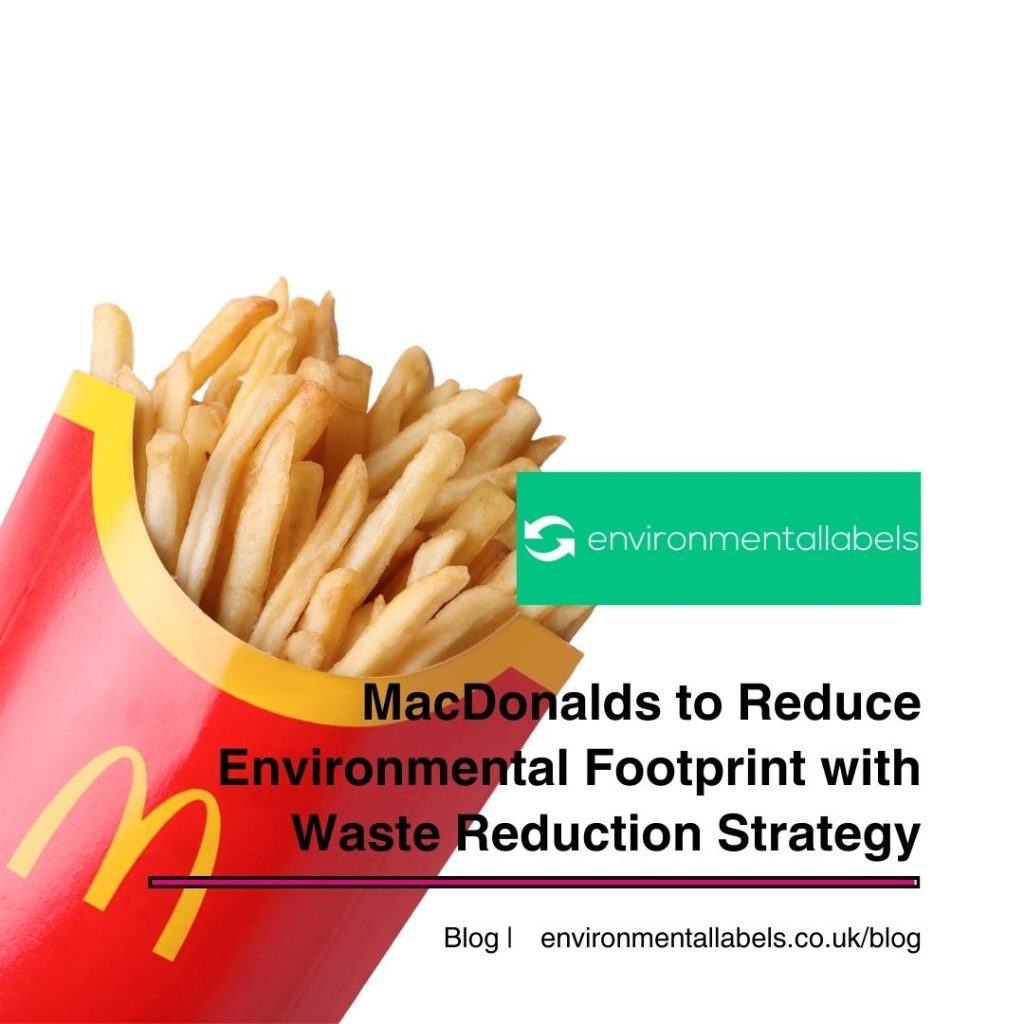McDonald’s is making major efforts to lessen its environmental footprint, with a focus on cutting waste and using more sustainable materials in its packaging and toy production. The company is committed to protecting the planet and strengthening its business by revamping its packaging approach, embracing alternative materials, and enhancing waste management practices.
By the end of 2023, McDonald’s had reached 86.7% of its goal to source 100% of its primary packaging from renewable, recycled, or certified materials. Since 2018, the company has also reduced the use of virgin fossil fuel-based plastic in its Happy Meal toys by 63.7%. In addition, 88.3% of McDonald’s restaurants in markets with advanced recycling infrastructure offered customers the opportunity to recycle or compost packaging items during 2023.
McDonald’s has been making strides to address waste-related challenges, particularly focusing on improving recycling infrastructure. The company continues to explore opportunities for using reusables in its restaurants, as well as collaborating with various stakeholders to find local and global solutions.
McDonald’s is working towards a circular economy approach, aiming to make better use of materials throughout the life cycle of its products. This includes reducing, reusing, and recycling packaging materials. The company is targeting a global shift towards the use of 100% renewable, recycled, or certified packaging by 2025.
Efforts are being made to make it easier for customers to recycle packaging in restaurants, particularly where the infrastructure exists. McDonald’s is also working with waste management companies and suppliers to optimise packaging for recycling. Clear on-pack labelling is another key initiative aimed at helping customers make informed recycling choices.
McDonald’s recognises that achieving its environmental goals requires collaboration with external partners. It is working with various organisations, including the World Wildlife Fund and the NextGen Consortium, to tackle issues related to single-use food packaging waste and create more sustainable solutions.
The company is also part of the Bioplastic Feedstock Alliance and engages with national packaging organisations in countries such as Australia, Canada, and the US to advance its circular economy ambitions. These partnerships are designed to leverage collective action and maximise the potential for impact, with the ultimate goal of reducing the environmental footprint of McDonald’s restaurants around the world.
But, McDonald’s is also at the forefront of a campaign against new laws to reduce packaging waste in the EU, in what has been described by some insiders as the largest-scale lobbying effort they have ever witnessed in the European Parliament. The fast food chain, alongside a number of packaging producers and trade associations, wrote to European policymakers at the end of April, demanding a pause to the legislation, which would champion reusable packaging in Europe.
The call follows mounting pressure from industry over the past year. Since June 2022, McDonald’s and other vested industry groups have funded three studies, launched two websites, and sponsored multiple articles attacking the legislation on the grounds it would undermine Europe’s net zero ambitions.
The new EU packaging law, which was published in November, aims to tackle growth in packaging waste and single-use plastic. By 2040, the latter is expected to double in Europe and to account for almost a fifth of the global carbon budget worldwide. Campaigners and academics accuse McDonald’s and other industry members of promoting scientifically dubious, cherry-picked evidence in opposition to the legislation.
The EU’s new Packaging and Packaging Waste law that McDonald’s and others are opposing proposes a ban on single-use packaging in restaurants and cafes by 2030, and an increase in reusables for takeaway food to 10 percent by 2030. Jean-Pierre Schweitzer, Deputy Policy Manager for Circular Economy at European Environmental Bureau (EEB), described the law as the “most lobbied on file that many people in the Parliament have witnessed.”

